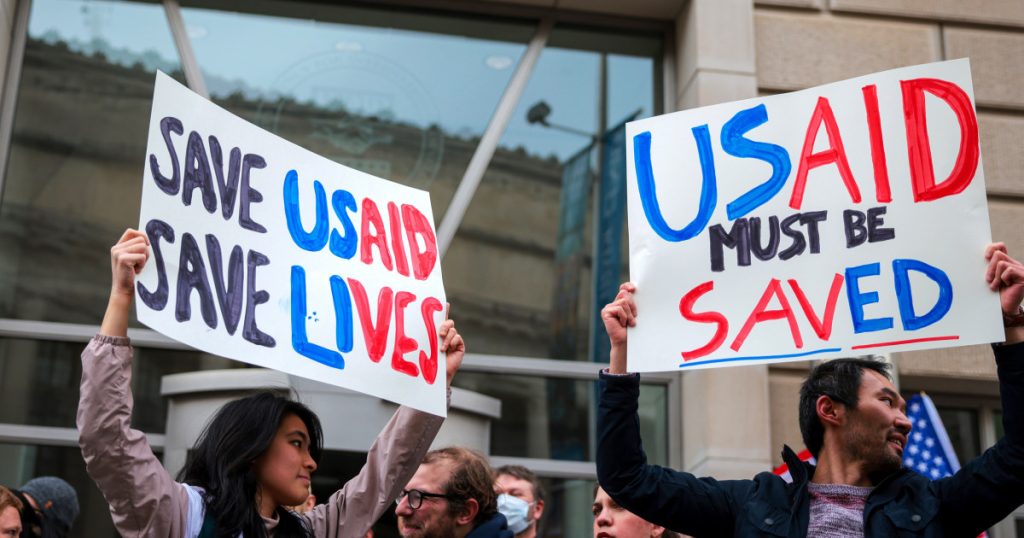A federal judge has temporarily halted a midnight deadline that would have drastically reduced the U.S. Agency for International Development’s (USAID) workforce from over 5,000 employees to just a few hundred. On Friday, U.S. District Judge Carl Nichols issued a pause on the plans to place 2,200 staff members on administrative leave and to expedite evacuations for personnel working abroad. Nichols extended the pause until next Friday at 11:59 p.m., giving the agency and its employees a brief reprieve. Additionally, he reversed the administrative leave status for 500 workers who had already been furloughed. In his ruling, Nichols stated that all USAID employees currently on leave would be reinstated, with full access to their email, payment systems, and security notifications until the new deadline. He also criticized the administration’s plan to impose a 30-day deadline for USAID personnel abroad to return to the U.S., arguing that such short notice would disrupt employees’ lives and make it difficult for them to plan their return.
The judge’s decision came in response to a lawsuit filed by two unions representing USAID workers: the American Foreign Service Association and the American Federation of Government Employees. The lawsuit alleged that the Trump administration’s efforts to dismantle USAID were unconstitutional, claiming that President Donald Trump exceeded his presidential authority by attempting to shut down the agency without congressional approval. The plaintiffs argued that the abrupt closure of USAID would create a global humanitarian crisis by halting the agency’s critical work in foreign assistance, which is carried out by employees, grantees, and contractors worldwide. The unions also criticized the administration’s actions as disruptive to the personal lives of USAID workers, many of whom were given little notice about their furloughs or evacuations.
During the hearing, Nichols expressed skepticism about the urgency of the midnight deadline, questioning the need for such a rapid reduction in the agency’s workforce. Acting Assistant Attorney General Brett Shumate, representing the Justice Department, argued that the president had identified corruption and fraud within USAID as the justification for the staffing cuts. Shumate’s response, however, failed to convince Nichols, who noted that the administration had not provided sufficient evidence to justify the immediate and drastic reduction of the agency’s staff. Nichols also scheduled an in-person preliminary injunction hearing for Wednesday, signaling that the case would continue to unfold in the coming days.
The legal battle over USAID’s fate is part of a broader effort by the Trump administration, in collaboration with tech billionaire Elon Musk’s Department of Government Efficiency, to reshape the federal government. Musk, a vocal critic of USAID, has repeatedly referred to the agency as “a criminal organization” and called for its abolition. President Trump has similarly accused USAID of mismanaging funds and engaging in fraudulent activities, although these allegations have not been substantiated with evidence. Secretary of State Marco Rubio defended the staffing cuts, claiming that they were necessary to force cooperation from the agency, but acknowledged that the disruptions to employees’ lives were unfortunate.
The unions and their legal representatives welcomed Nichols’ ruling as a significant step in their fight to protect USAID’s mission and its employees. Lauren Bateman, an attorney with Public Citizen Litigation Group, which is representing the unions, called the decision “a step forward” in challenging what they described as an unconstitutional and illegal attempt to dismantle the agency. The plaintiffs are confident that they will demonstrate sufficient standing to proceed with the case, emphasizing their commitment to upholding the rule of law and protecting the privacy and rights of American citizens.
The temporary pause on USAID’s downsizing has bought the agency and its employees some time, but the ultimate outcome of the case remains uncertain. The ruling highlights the ongoing tensions between the executive branch and the judiciary over the limits of presidential authority, particularly in matters of agency oversight and congressional approval. As the legal proceedings continue, the future of USAID and its critical humanitarian work around the world hangs in the balance, with far-reaching implications for global aid efforts and U.S. foreign policy.
